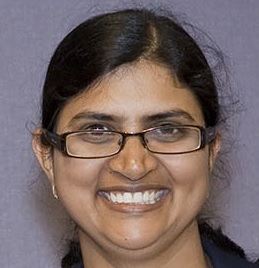
Project Summary:
Tourette syndrome/tics, obsessive compulsive disorder and autism are very common neuropsychiatric diseases with onset in childhood affecting 1 in 50-200 people. Tourette syndrome is characterized by multiple motor tics and vocal tics. Obsessive-compulsive disorder (OCD) in children causes unwanted thoughts resulting in repetitive compulsive behaviors and anxiety. Autism spectrum disorders (ASD) are characterized by social-interaction difficulties, communication challenges and a tendency to engage in repetitive behaviors. These three conditions are often seen together and cause major burden to society in the form of severe behavior problems, frequent jerking affecting mobility, sensory overload, social impairment, attention concentration difficulties and affect learning and day to day functioning of the patients and their families. In a recent UK health economics assessment, autism and obsessive compulsive disorder have been defined as two of the top ten economically costly diseases to society. A number of factors including genetic/ environmental and immune mechanisms have been proposed as etiological factors for these disorders. Current treatment is mainly symptomatic directed against psychological strategies and psychotropic medications to correct neurochemistry in the brain.
Over the last ten years, there has been an increasing literature on the role of possible immune activation. Our clinical experience tells that a subgroup of these ‘immune-autism spectrum disorders-tic-obsessive compulsive disorder patients respond to immune treatment. Despite reported immunological abnormalities and response to immune treatment, we unfortunately do not have biomarkers to identify inflammation and monitor disease response in these children. If inflammation is identified, immune treatment strategies may help modify the disease course, relieve symptom burden of the patients and improve their function.
Cytokines and chemokines are biological polypeptide molecules that have been shown to be elevated in cerebrospinal fluid of a number of inflammatory disorders of the brain, and can be potentially used as markers of inflammation. The CSF neuroaxonal and glial protein biomarkers help identify extent of brain injury. In this study, we will collect the clinical data and treatment response of large number of children with tics, obsessive compulsive disorder and autism who have a fluctuating or relapsing clinical course and will measure cytokine/chemokine and neuronal/glial markers in spinal fluid to help identify patients with immune activation and brain injury respectively. Through this study, we hope to identify treatable forms of immune mediated subgroup of tics- obsessive compulsive disorder -autism, describe the clinical phenotypes, treatment response and identify children at risk of long-term neurological deficits, who can be treated aggressively with immunomodulatory treatment to avoid neurological sequelae. The cytokine/chemokine profiling in these disorders will provide new insight into poorly understood immune mediated pathogenesis, and improve our ability to diagnose, monitor and treat inflammation which may lead to development of new treatment strategies in future.



 The Brain Foundation is the largest, independent funder of brain and spinal injury research in Australia. We believe research is the pathway to recovery.
The Brain Foundation is the largest, independent funder of brain and spinal injury research in Australia. We believe research is the pathway to recovery.